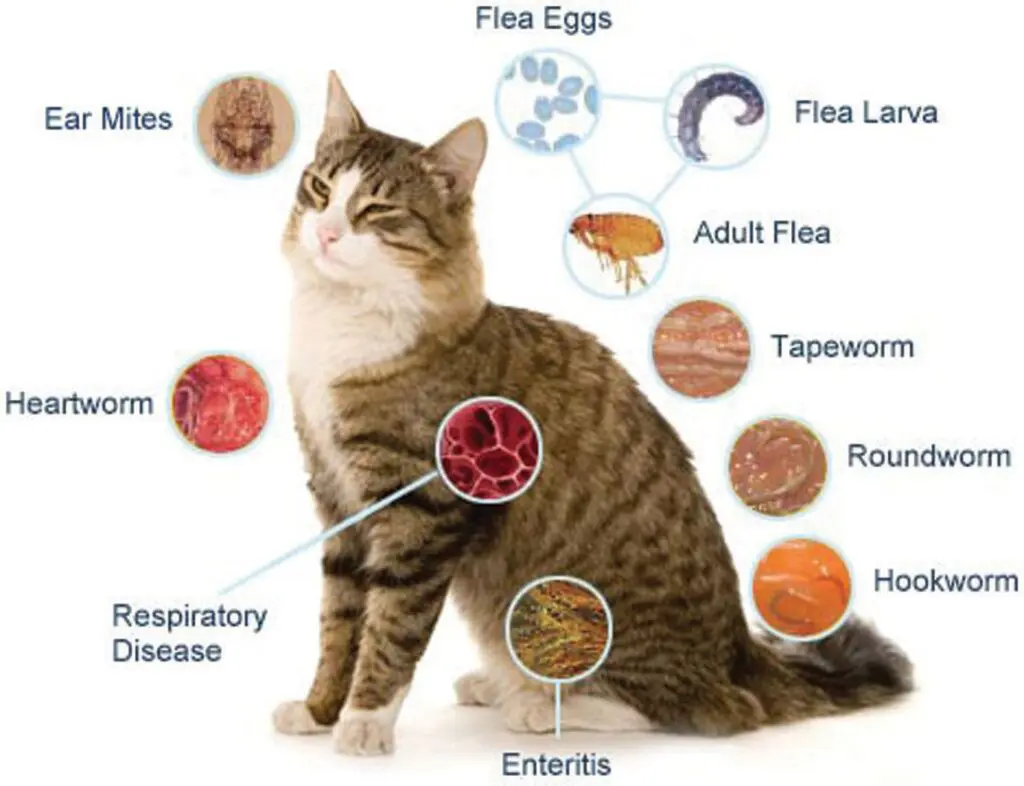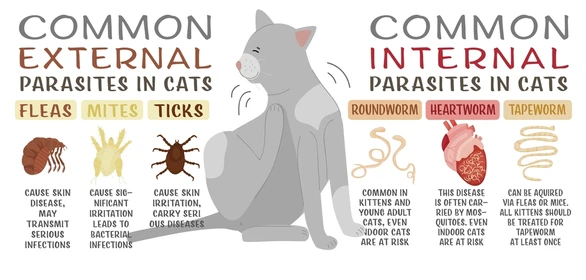Kittens are adorable, playful, and curious creatures that bring joy to our lives. However, their adventurous nature can sometimes lead them into situations where they are exposed to parasites. As responsible pet owners, it is crucial to understand the importance of Identifying and Preventing Parasites in Kittens to ensure their health and well-being. This guide provides valuable insights and practical tips to help you protect your furry friend from harmful parasites, focusing on the best cat health care practices.
Understanding Common Parasites in Kittens
Kittens are susceptible to a variety of parasites that can affect their overall health. Here are some common parasites to be aware of:
- Fleas: These tiny, blood-sucking insects are a common nuisance for kittens. They can cause itching, skin irritation, and even anemia in severe cases.
- Ticks: Ticks attach themselves to a kitten’s skin and can transmit diseases like Lyme disease and Rocky Mountain spotted fever.
- Worms: Intestinal parasites such as roundworms, hookworms, and tapeworms can cause digestive issues, weight loss, and lethargy in kittens.
- Ear Mites: These microscopic parasites reside in a kitten’s ear canal, leading to itching, inflammation, and infections.

Signs of Parasite Infestation
Identifying and Preventing Parasites in Kittens requires vigilance and regular monitoring. Look out for the following signs that may indicate a parasite infestation:
- Excessive scratching or grooming: This could be a sign of fleas or mites.
- Visible parasites or eggs: Fleas, ticks, or worm segments may be visible on the kitten’s fur or in their feces.
- Changes in appetite or weight loss: Intestinal parasites can affect a kitten’s appetite and cause weight loss.
- Ear discharge or head shaking: Ear mites often cause a dark, waxy discharge and discomfort.
Preventive Measures for Parasite Control
Taking proactive measures to prevent parasites is an essential aspect of best cat health care. Here are some effective strategies to protect your kitten:
- Regular Veterinary Check-ups: Schedule routine vet visits to ensure your kitten is healthy and free of parasites. Your vet can recommend appropriate treatments and preventive medications.
- Flea and Tick Prevention: Use veterinarian-approved flea and tick preventatives, such as topical treatments, collars, or oral medications. Ensure you follow the recommended dosage and application instructions.
- Deworming: Deworming is crucial for kittens, especially since they can contract worms from their mother or the environment. Consult your vet for a suitable deworming schedule.
- Maintaining a Clean Environment: Keep your home and your kitten’s living area clean and free of dirt and debris. Regularly wash bedding, vacuum carpets, and dispose of waste promptly.
- Proper Nutrition: A balanced diet strengthens your kitten’s immune system, making it more resistant to parasites. Consult your vet for dietary recommendations that include essential nutrients.

Natural Remedies and Alternatives
In addition to conventional treatments, some pet owners opt for natural remedies to combat parasites. While these alternatives can be effective, it’s important to consult with your veterinarian before using them. Some popular natural remedies include:
- Diatomaceous Earth: This natural powder can be sprinkled on your kitten’s fur to help eliminate fleas.
- Apple Cider Vinegar: Diluted apple cider vinegar can be used as a spray to deter fleas.
- Essential Oils: Certain essential oils, like lavender and eucalyptus, may repel parasites. However, use them with caution, as some oils can be toxic to cats.
Conclusion
Incorporating Identifying and Preventing Parasites in Kittens into your pet care routine is crucial for their long-term health and happiness. By staying vigilant, providing best cat health care, and consulting with your veterinarian, you can protect your kitten from the discomfort and dangers of parasites. Remember, a healthy kitten is a happy kitten!





















